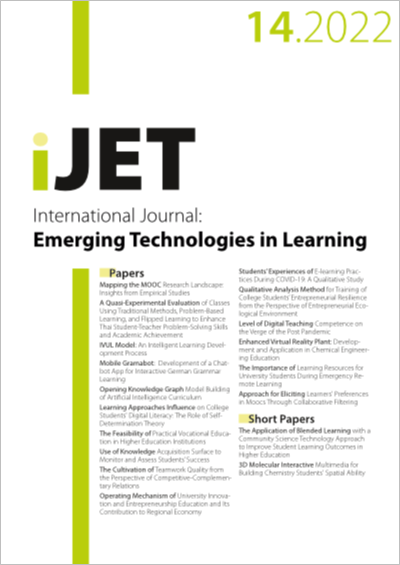Mapping the MOOC Research Landscape: Insights from Empirical Studies
DOI:
https://doi.org/10.3991/ijet.v17i14.28721Keywords:
MOOCs, Self-regulated learning, topic modeling, scienometrics, online learning, trendsAbstract
Several reviews have been conducted of empirical studies of MOOC learners and teachers.The scope and foci of such reviews has varied, as has the reporting of the details of how they were conducted.This study analysed 1,435 published articles determining 922 to be empirical studies. We analyzed the full text of 826 of these articles to which the research team had access using the scienometic tool Scival, manual researcher evaluation and topic modelling to determine: the impact as measured by citations; geographic and institutional publishing patterns; and the themes and types of MOOC research. We found that MOOC research is mostly clustered in the discipline of computer science. Learner persistence and self-regulated learning continue to be a focus of study and most impactful finding respectively as studies of previous periods have found. Research is carried out worldwide, with the most influential studies and researchers clustered in particular institutions and countries. Implications of this study are that MOOC research is clustered in certain ways which may give rise to particular biases, that researchers should consider more interdisciplinary approaches in their research and greater awareness and use of open science principles and practices in their work.
Downloads
Published
How to Cite
Issue
Section
License
Copyright (c) 2022 Eamon Costello, Tiziana Soverino, Richard Bolger

This work is licensed under a Creative Commons Attribution 4.0 International License.


